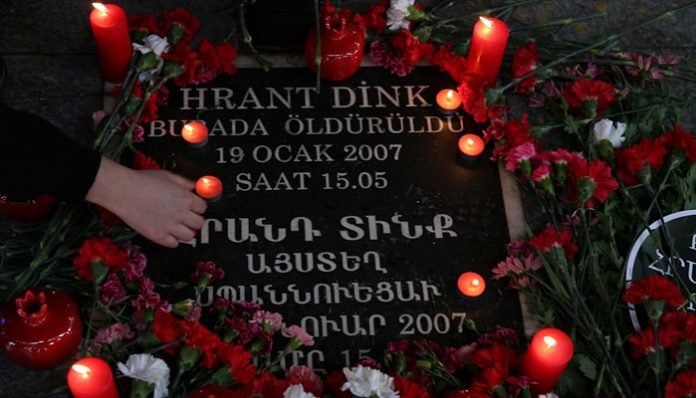
Veysel Şahin, a defendant in the retrial concerning the 2007 assassination of Turkish-Armenian journalist Hrant Dink, said in court that a piece of intelligence received six months before the murder was documented as arriving one day afterward, the Evrensel newspaper reported on Wednesday.
Şahin said the tampering was done at the instruction of former gendarmerie commander Ali Öz, another defendant in the case.
“Ali Öz ordered us to conceal the information,” Şahin said. “I couldn’t object to it.”
Şahin’s statement was corroborated by Okan Şimşek, a former gendarmerie intelligence officer standing trial as a defendant.
“We communicated the intel to our division head. It also came up during an intel assessment meeting,” Şimşek said. “Yet, our commander Ali Öz waved us off, saying we’d talk about it later.”
The hearing was held at an İstanbul court on Wednesday and was adjourned until May 31 to give the prosecutor time to prepare opinions.
The court also ruled to keep Şahin and Şimşek in pretrial detention and Öz under house arrest.
A total of 15 people are standing trial in connection with the case, which was launched after their previous sentences were overturned for being too light by the Supreme Court of Appeals.
In the previous trial, former police chiefs Ali Fuat Yılmazer and Ramazan Akyürek were sentenced to aggravated life imprisonment for premeditated murder, while police intelligence chief Sabri Uzun and former provincial police chief Celalettin Cerrah were acquitted.
The 52-year-old Dink, editor-in-chief of the Turkish-Armenian bilingual Agos weekly, was shot dead with two bullets to the head outside the newspaper’s headquarters in central İstanbul on January 19, 2007 by Ogün Samast, a then-17-year-old jobless high-school dropout.
International observers, such as the Committee to Protect Journalists (CPJ), have described the investigation into the assassination as being politicized.
The family of Dink has also frequently expressed dissatisfaction at the court proceedings, which they said failed to go after the real actors behind the murder.
Samast, who was released from prison last November after serving more than 16 years, has claimed that he was told before carrying out the act that there would be government support behind him after committing the murder and that he should have no worries about it.














